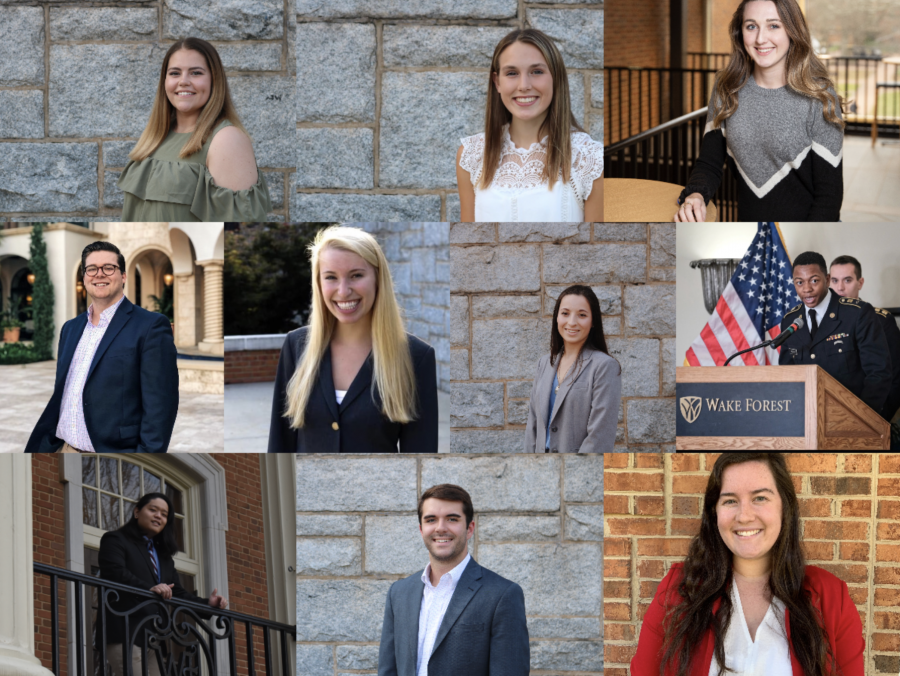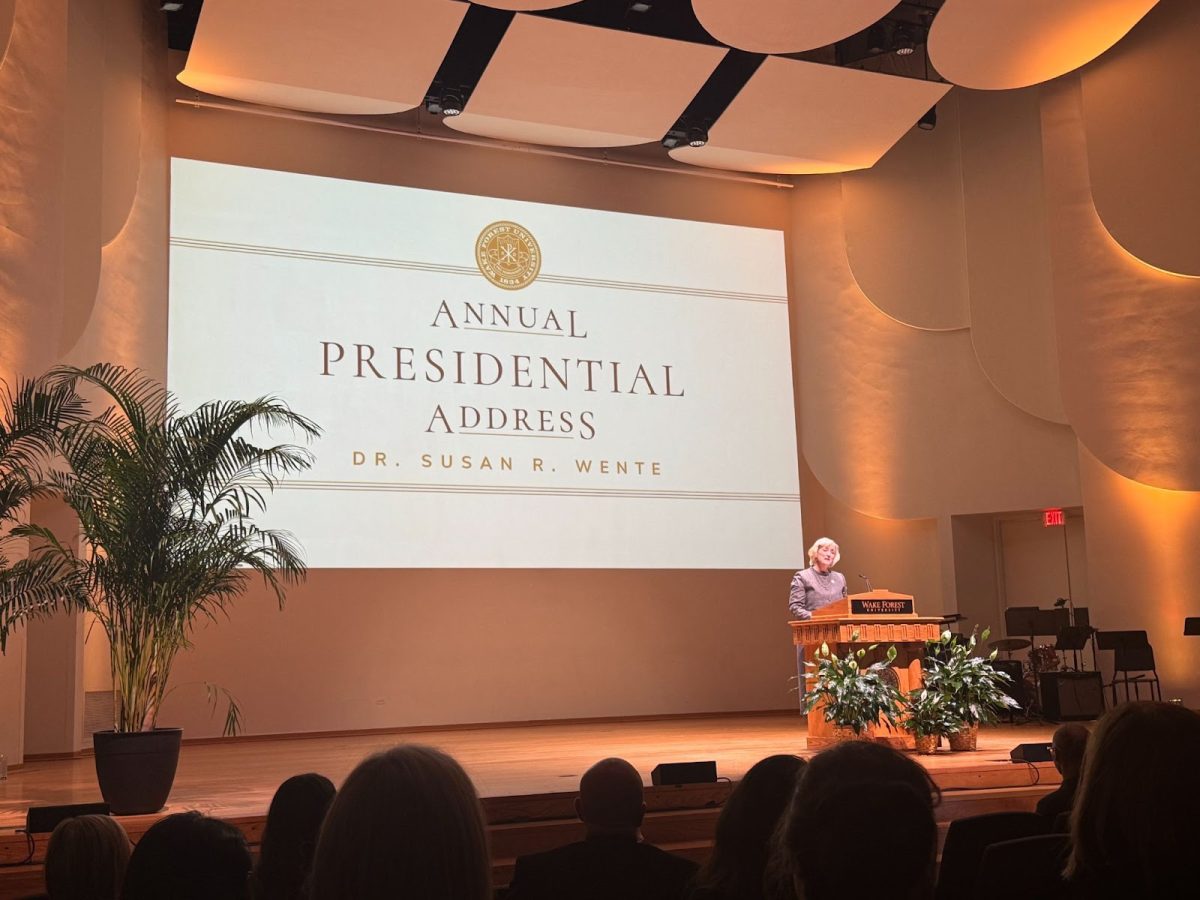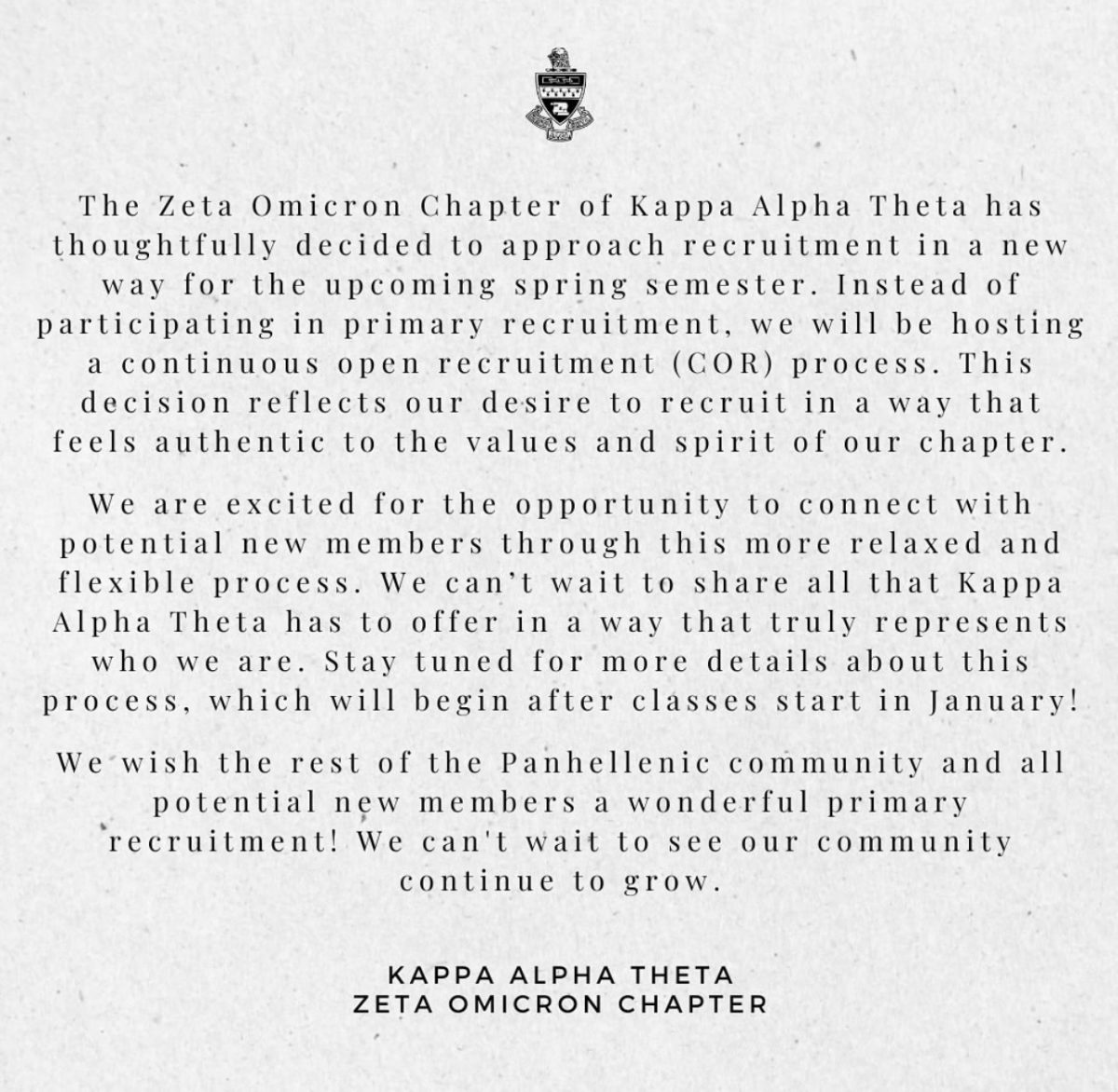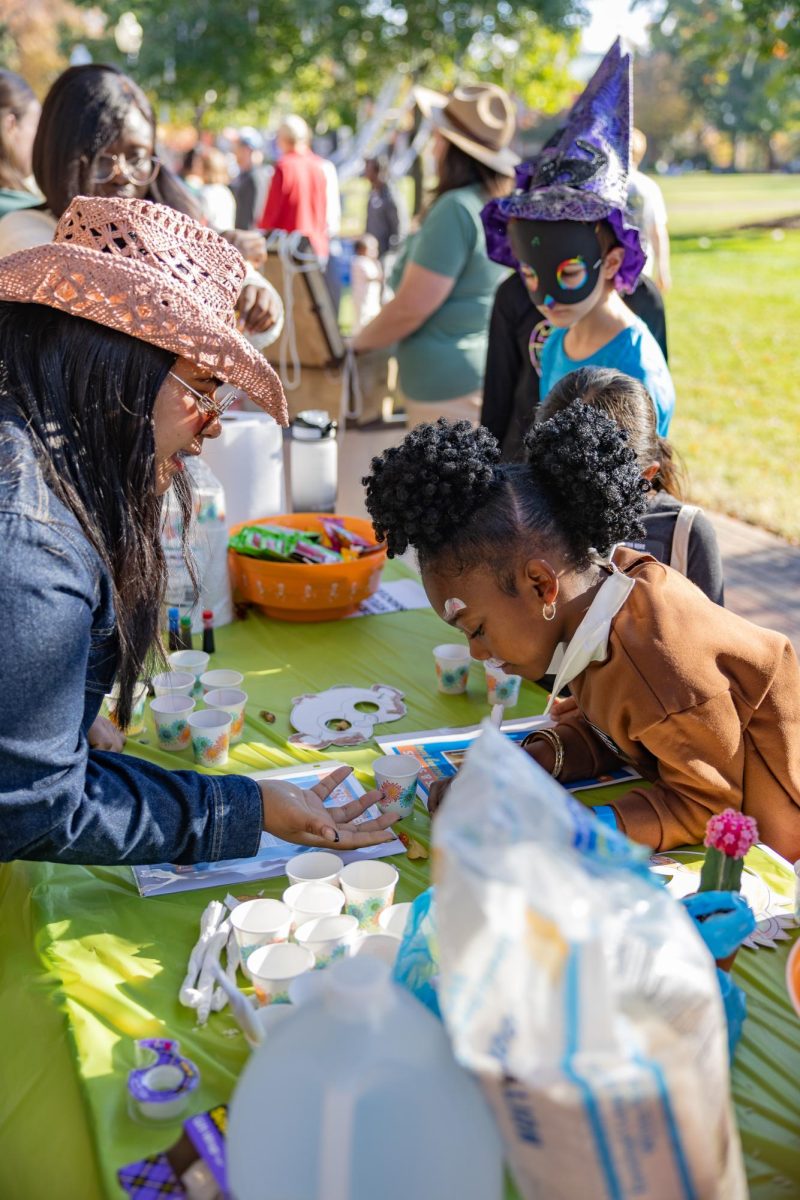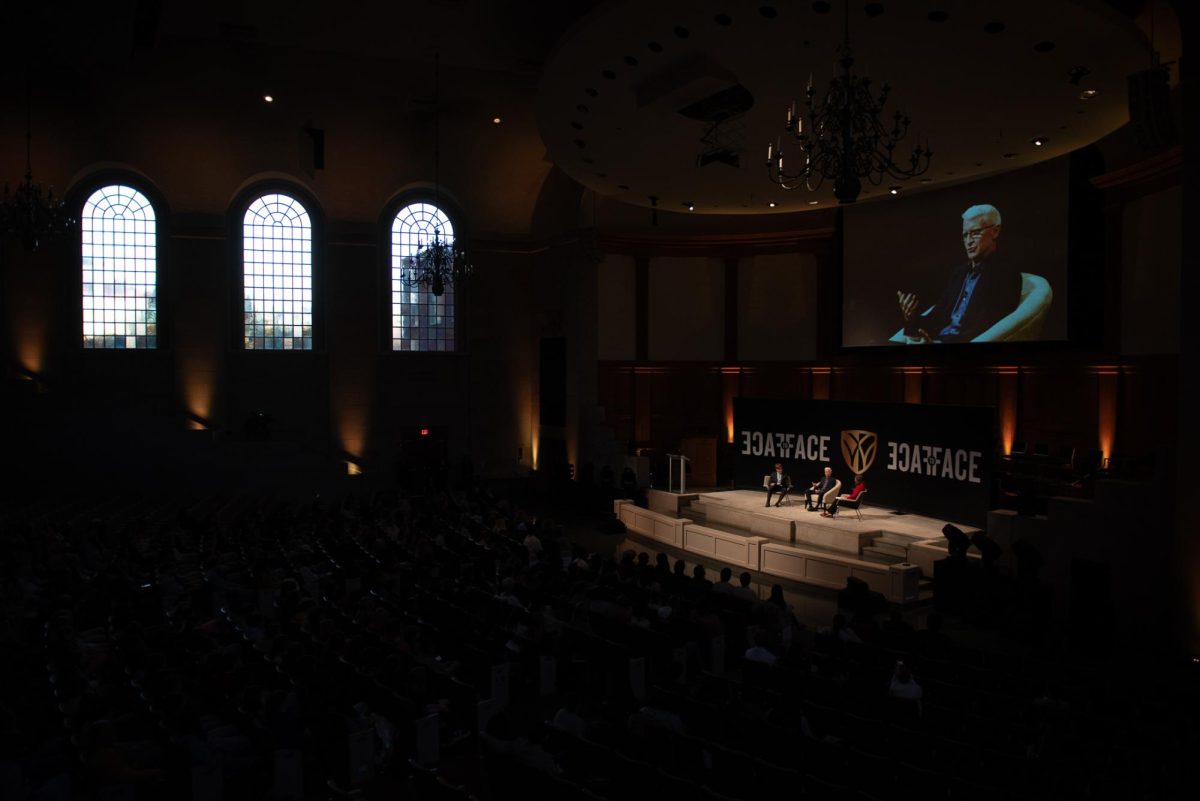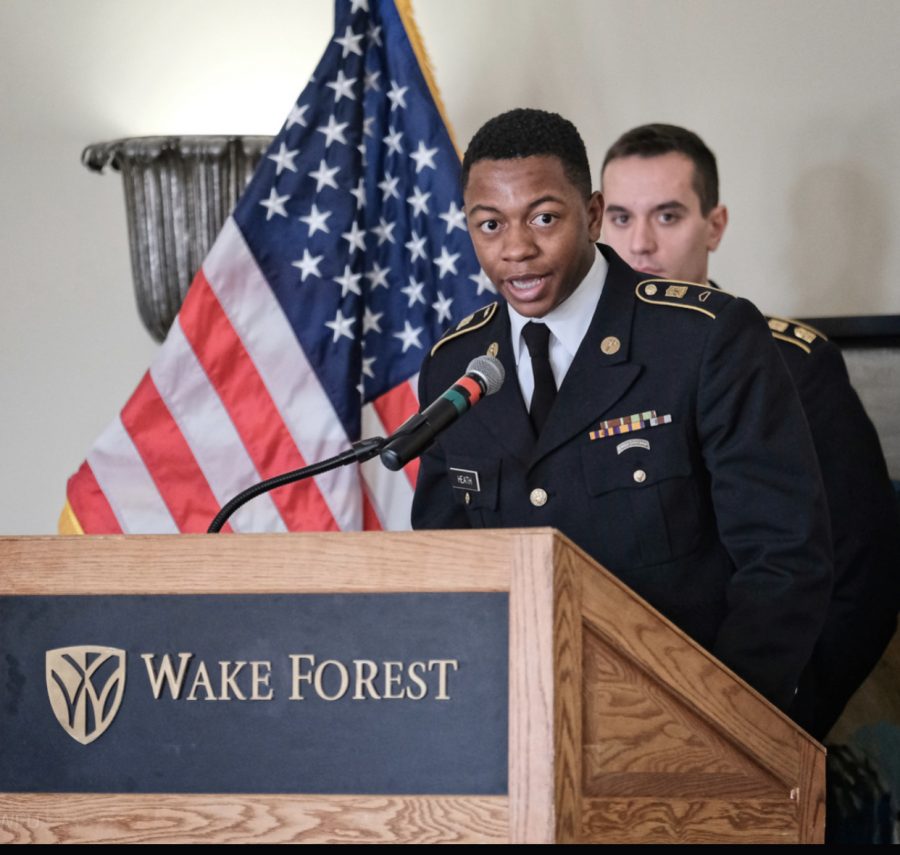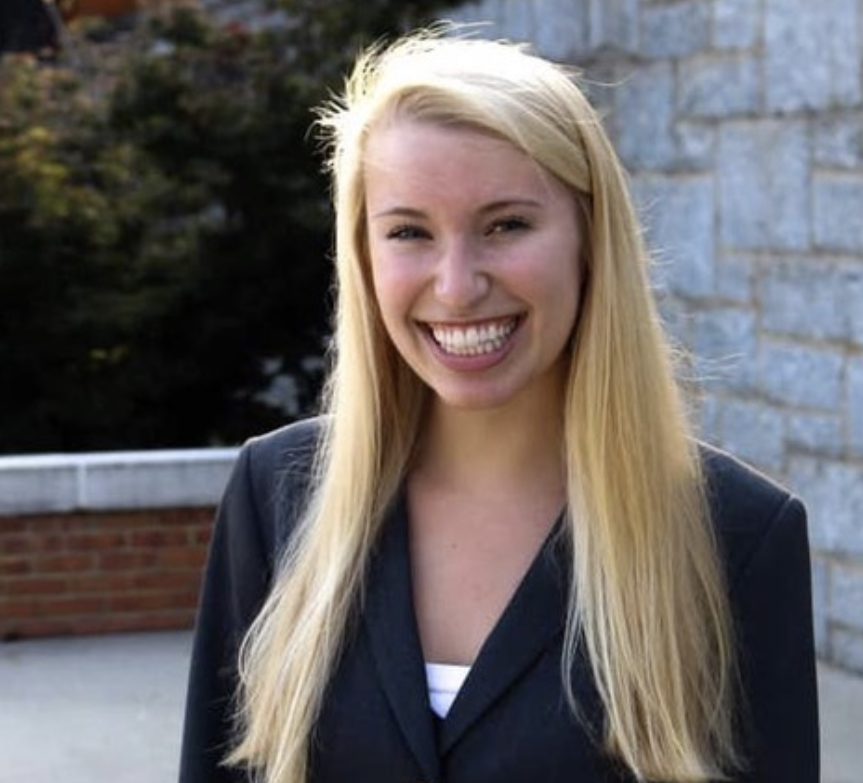Wake Forest Student Government candidates congregated Sunday night for the debate in anticipation of the election. The event, which was staged over Zoom, was presided over by the current student body president, senior Mellie Mesfin.
As the election took place on Tuesday, April 7, the results are as follows: junior Miles Middleton won the race for President. Junior Victoria Parker won the race for Treasurer. Two run-off elections will occur on April 9. For Secretary, it will be between sophomores Caroline Walker and Dave Myatt. For Speaker of the House, the run-off will be between juniors Ally Swartzberg and Jenna Mayer. To learn more about the debate, as well as the candidates slated for the run-off election, here is the Old Gold & Black’s recap:
Treasurer
There was only one candidate for the office of treasurer this year: junior Victoria Parker. She cited a wealth of previous experience that included her role on the Student Budget Advisory Committee (SBAC) for two years, promising greater efficiency and more resources. She also referenced her plans to continue developing online modules on Sakai for events, if the university intended to be a virtual campus longer.
At Mesfin’s prompting, Parker asserted that all students should care about who takes the treasurer role, due to its ubiquity among student organizations.
Secretary
There were three candidates running for Secretary: sophomores Caroline Walker, Dave Myatt and Maya Dalton.
Walker highlighted her campaign’s focus on sustainability, transparency and inclusion, ensuring that sustainable initiatives are increased across campus and that all students’ voices are heard. She discussed her goal to increase athlete and non-athletic regular person (NARP) integration. Further, she cited her previously-held positions as co-chair of the academic committee, news editor of the Old Gold & Black and her personal relationships within the office of sustainability. Walker cited several projects she worked on: the student athlete promotional video, the new environmental majors and the new class “Classics Beyond Whiteness.”
Myatt discussed the major goals of his campaign: an increased Student Government retention rate, improving NARP-athlete relations and helping the student organizations recover from the devastation of COVID-19. He also mentioned a few other major goals: repealing the new tailgate regulations to help decrease underage drinking, and workshops to promote unity among the student body. He mentioned his numerous leadership roles in Student Government, asserting the importance of direct contact to address binge drinking and other problems on campus.
Dalton highlighted the importance of wellbeing in her campaign. She asserted the importance of mental health advocacy, underlining a need for more counselling and sexual assault recovery resources. She emphasized her previous involvement in Student Government and her sorority, exemplifying her roles in outreach and planning. She mentioned having plans to work with the new title IX director when campus returns to normalcy, regarding new and quicker resources for survivors.
Speaker of the House
Three candidates were also running for Speaker of the House: sophomore Ally Swartzberg and juniors Jenna Mayer and Matthew McIlwain.
Swartzberg promised large structural changes, in order to make students feel more safe, welcome and included in all aspects of campus life. She emphasized the importance of holding the campus administration accountable, highlighting her previous roles in Student Government committees. Swartzberg delineated the necessity of an external platform including all campus voices to empower the senate.
Mayer has specific goals as well, which include extending reading days and offering a community service option for parking tickets. She also mentioned her goals to increase student awareness of Student Government’s operations, and their role as liaison between student body and administration. Mayer acknowledged that some of her ideas may be difficult to enact, but she was optimistic that her personal connections in various departments would assist her.
McIlwain highlighted his goals to ensure students are able to handle the transition to virtual learning, and back again, by fostering a better sense of community. He also highlighted the importance of connecting the greater Winston-Salem community, through mental health support and collaborative events. He said he intends to spend a lot of time on smaller issues, as a moderator and community leader. He mentioned the potential for Greek life to be more involved in sustainability as well.
President
There were also three candidates running for president: juniors Laura Horton, Miles Middleton and Toki Hong.
Horton highlighted her campus and community involvement, citing a focus on wellbeing. She acknowledged that change is difficult to enact, but she emphasized her ability to get things done, as shown by her previous positions on the Judiciary Committee, the Academic Committee and as secretary. Horton argued that the university needs to improve its image in Winston-Salem.
Middleton said his campaign is focused on students; especially ones struggling due to COVID-19. He highlighted the importance of community activism, civic engagement and leadership reform. He stated his intention to empower relationships and not act out of self-interest. He highlighted his personal experiences in ROTC, Title IX and the Bias reporting committee.
Hong’s platform rests on inclusion and transparency, with an emphasis on change. He characterized himself as a person of the people, and emphasized bridging a gap between the Wake Forest and Winston-Salem communities. He said it was important that students and others are aware of where the university’s money goes, and more information on what Student Government does.


